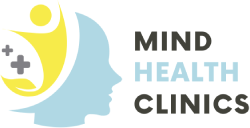Alcohol Dependence
What are the features of alcohol dependence?
Alcohol dependence, a severe form of alcohol use disorder, is characterized by several key features: craving, a strong need or urge to drink; loss of control, where one cannot stop drinking once started; physical dependence, evidenced by withdrawal symptoms like nausea, sweating, shakiness, and anxiety when alcohol use is halted; tolerance, the need to drink greater amounts of alcohol to achieve the same effect; neglect of other activities, where important social, occupational, or recreational activities are reduced or given up due to alcohol use; and continued use despite knowledge of harm, where an individual continues to drink even though they are aware it’s causing physical or psychological problems. These features often lead to a cycle of increasing alcohol intake to prevent withdrawal symptoms, further entrenching the dependency.
Diagnostic Criteria:
Alcoholism, or Alcohol Use Disorder (AUD), is diagnosed using the DSM-5 criteria, where a person meeting at least two of the following within a 12-month period qualifies: showing tolerance, experiencing withdrawal, consuming more than intended, having persistent desire or unsuccessful efforts to cut down, spending significant time on alcohol-related activities, giving up important activities, and continuing use despite knowing it causes problems. The severity is gauged by the number of criteria met.
Inquire About This Service
Treatment for achohol abuse:
Treatment options for alcohol abuse disorders encompass a range of approaches tailored to individual needs, including detoxification to manage withdrawal symptoms, medications like naltrexone or disulfiram to reduce cravings or deter drinking, behavioral therapies such as Cognitive Behavioral Therapy (CBT) or Motivational Enhancement Therapy to modify drinking behavior, support groups like Alcoholics Anonymous for peer support, rehabilitation programs offering structured treatment in inpatient or outpatient settings, counseling to address underlying issues and develop coping strategies, lifestyle changes to promote healthier habits, and aftercare to support long-term sobriety. These treatments can be combined or sequenced to enhance recovery outcomes. Medications are further discussed below:
- Opioid Antagonists: Naltrexone (oral or injectable Vivitrol) reduces the rewarding effects of alcohol by blocking opioid receptors, thus diminishing cravings.
- Aldehyde Dehydrogenase Inhibitors: Disulfiram (Antabuse) causes an adverse reaction when alcohol is consumed by inhibiting the enzyme that metabolizes alcohol, leading to symptoms like nausea and flushing, which discourages drinking.
- Anti-craving Medications: Acamprosate (Campral) helps to stabilize brain chemistry post-withdrawal, potentially reducing the urge to drink by mitigating the effects of protracted withdrawal.
- Anticonvulsants: Topiramate isn’t approved specifically for alcohol use disorder but has been effective off-label in reducing alcohol consumption by altering neurotransmitter activity.
- Serotonin Modulators: Ondansetron targets serotonin receptors to decrease alcohol’s rewarding effects, particularly useful in early-onset alcoholism.
- Benzodiazepines: While not for treating chronic alcohol dependence, benzodiazepines like diazepam (Valium) or chlordiazepoxide (Librium) are often used in the management of acute alcohol withdrawal to prevent or treat symptoms like seizures and delirium tremens due to their sedative and anticonvulsant properties.


